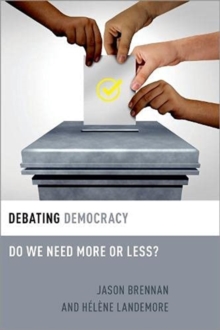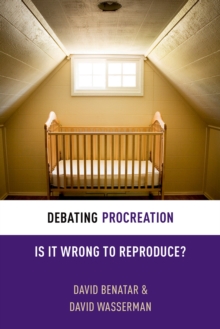
Debating Climate Ethics Paperback / softback
by David (Professor of Philosophy and Ben Rabinowitz Endowed Professor of the Human Dimension Weisbach, David A. (Walter J. Blum Professor of Law and Senior Fellow, the Computation Institute of Weisbach
Part of the Debating Ethics series
Paperback / softback
Description
In this volume, Stephen M. Gardiner and David A. Weisbach present arguments for and against the relevance of ethics to global climate policy.
Gardiner argues that climate change is fundamentally an ethical issue, since it is an early instance of a distinctive challenge to ethical action (the perfect moral storm), and ethical concerns (such as with justice, rights, political legitimacy, community and humanity's relationship to nature) are at the heart of many of the decisions that need to be made.
Consequently, climate policy that ignores ethics is at risk of "solving " the wrong problem, perhaps even to the extreme of endorsing forms of climate extortion.
This is especially true of policy based on narrow forms of economic self-interest.
By contrast, Weisbach argues that existing ethical theories are not well suited to addressing climate change.
As applied to climate change, existing ethical theories suffer from internal logical problems and suggest infeasible strategies.
Rather than following failed theories or waiting indefinitely for new and better ones, Weisbach argues that central motivation for climate policy is straightforward: it is in their common interest for people and nations to agree to policies that dramatically reduce emissions to prevent terrible harms.
Information
-
Available to Order - This title is available to order, with delivery expected within 2 weeks
- Format:Paperback / softback
- Pages:280 pages
- Publisher:Oxford University Press Inc
- Publication Date:11/08/2016
- Category:
- ISBN:9780199996483
Information
-
Available to Order - This title is available to order, with delivery expected within 2 weeks
- Format:Paperback / softback
- Pages:280 pages
- Publisher:Oxford University Press Inc
- Publication Date:11/08/2016
- Category:
- ISBN:9780199996483










